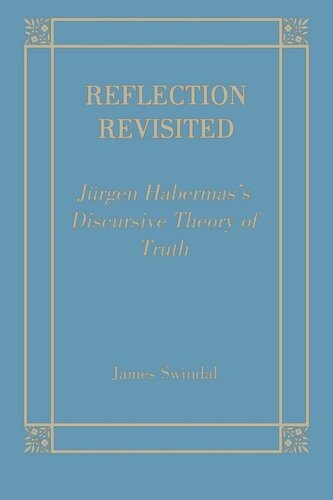

Most ebook files are in PDF format, so you can easily read them using various software such as Foxit Reader or directly on the Google Chrome browser.
Some ebook files are released by publishers in other formats such as .awz, .mobi, .epub, .fb2, etc. You may need to install specific software to read these formats on mobile/PC, such as Calibre.
Please read the tutorial at this link: https://ebookbell.com/faq
We offer FREE conversion to the popular formats you request; however, this may take some time. Therefore, right after payment, please email us, and we will try to provide the service as quickly as possible.
For some exceptional file formats or broken links (if any), please refrain from opening any disputes. Instead, email us first, and we will try to assist within a maximum of 6 hours.
EbookBell Team

4.7
96 reviewsJurgen Habermas, particularly in his master work Theory of Communicative Action (1981), takes us several of the basic insights of the philosophical tradition of reflection initiated by Kant, and sets it on a new and highly original emancipative path. He claims that reflection not only can determine the limits of reasoning about thought and action, but also can grasp the limits that human agents face in freeing themselves form unjust social and economic structures. Human agents can engage in constructive and emancipative communication with others by determining the limits not of their own consciousness, but of the intersubjective structures shared in everyday communication. Reflection Revisited examines Habermas’ own two-stage development of this theory of emancipative reflection and explicates how he applies reflection specifically to the problems of personal identity development and ethics.